Vegetables that grow all year round in india, In India, certain vegetables thrive year-round, offering a steady supply for the kitchen and a vibrant touch to home gardens. These vegetables, adaptable to various Indian climates and soil types, are easy to grow with minimal care and provide a wealth of health benefits. Here’s an in-depth guide on some of the popular ones, including Bitter Gourd, Brinjal, Chili, Cucumber, Lady Finger, Capsicum, Tomato, Beans, and Pumpkin. Each vegetable is detailed with a focus on its definition, plant care, benefits, uses, and culinary applications.
1. Bitter Gourd (Karela)
Definition
Bitter gourd, or karela, is a unique, bumpy-skinned vegetable known for its distinct bitterness. It belongs to the gourd family and is popular in tropical and subtropical regions.
Plant Care
Bitter gourd grows best in warm climates with well-drained soil and plenty of sunlight. It thrives with regular watering, but overwatering must be strictly avoided. A support trellis helps the vine spread.
Bitter Gourd Benefits
Rich in vitamins C and K, bitter gourd is also known for its blood sugar-lowering effects, making it beneficial for diabetes management. It contains antioxidants that support immune health and improve skin health.
Uses
Bitter gourd is used for both medicinal and culinary purposes, particularly in traditional Indian medicine to treat skin infections, purify the blood, and aid digestion.
Cooking
Bitter gourd can be stuffed, stir-fried, or prepared as a curry. Its bitterness is often mellowed by soaking it in salted water before cooking. Click here to buy Bitter Gourd Seeds.
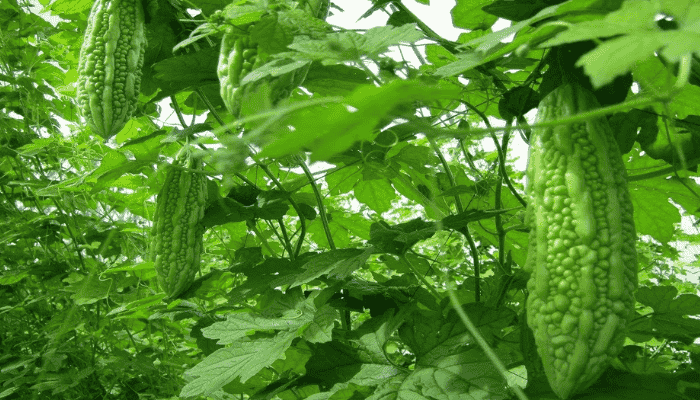
2. Brinjal (Eggplant)
Definition
Brinjal, also known as eggplant, is a versatile vegetable with a smooth, shiny purple skin and spongy flesh. It belongs to the nightshade family.
Plant Care
Eggplants prefer warm temperatures and need full sunlight for optimal growth. Regular watering and well-fertilized soil are crucial. They are susceptible to pests, so occasional organic pesticides may be necessary.
Benefits
Eggplants are low in calories and high in fiber, which aids digestion and helps in weight management. They’re packed with powerful antioxidants that boost heart health.
Uses
Brinjal is commonly used in folk medicine to address digestive issues and reduce inflammation.
Brinjal cooking dish
Eggplants can be grilled, baked, or made into dishes like baingan bharta, a popular Indian smoky eggplant dish. They absorb flavors well, making them perfect for curries and stews. Click here to buy Brinjal Seeds.
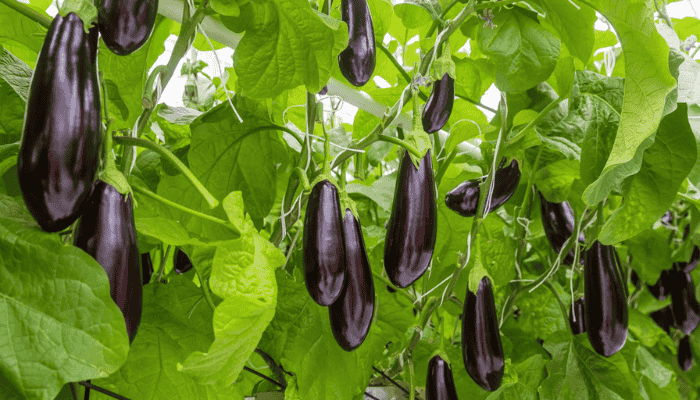
3. Chili
Definition
Chili peppers are small, elongated fruits with a spicy flavor, primarily used as a spice or seasoning.
Chili Plant Care
Chilies thrive in warm temperatures with plenty of sunlight. They require regular but moderate watering and benefit from a rich, organic soil mix.
Benefits
Chilies are rich in capsaicin, which has anti-inflammatory and pain-relief properties. They boost metabolism and are high in vitamins C and A, which support immune function.
Uses
In addition to their culinary uses, chilies are known to help improve circulation and reduce congestion.
Cooking
Chilies are utilized in an array of forms—vibrant fresh, sun-dried, or zesty powdered. They are essential in Indian cooking, adding spice and depth to curries, pickles, and sauces. Click here to buy Chili Seeds.
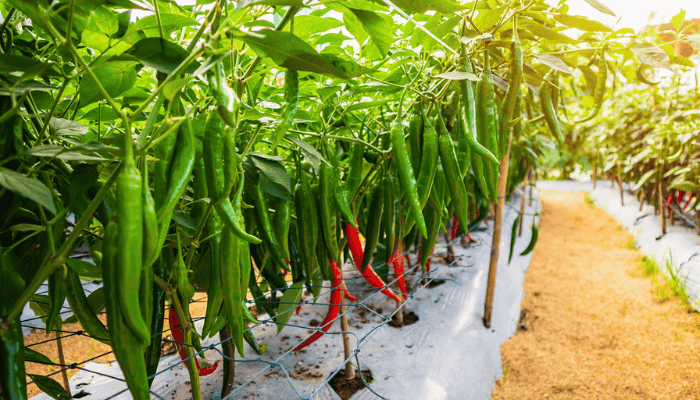
4. Cucumber
Definition
Cucumber is a refreshing, water-rich vegetable commonly used in salads. It belongs to the gourd family and has a crisp texture.
Plant Care
Cucumbers require a warm environment, ample sunlight, and a well-drained soil. They need frequent watering, especially in warmer months, and benefit from a trellis for support.
Cucumber Benefits
Cucumbers are hydrating and contain antioxidants, vitamins K and C, and dietary fiber. They are beneficial for skin health, aiding in hydration and detoxification.
Uses
Apart from its culinary uses, cucumber is commonly used in skincare due to its cooling and hydrating properties.
Cooking
Cucumber is mostly eaten raw in salads, but it can also be pickled or used in drinks for added freshness. Click here to buy Cucumber Seeds.
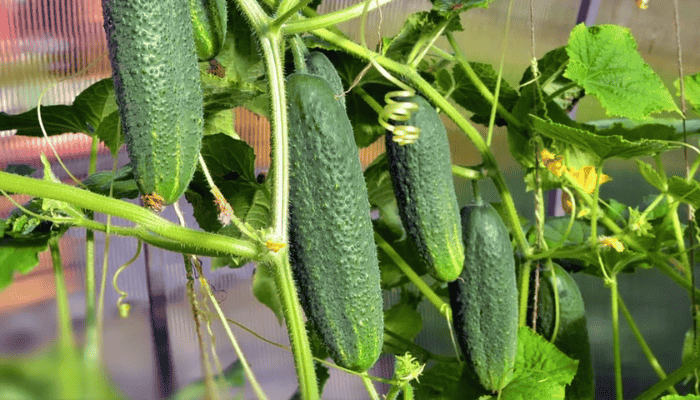
5. Lady Finger (Okra)
Definition
Lady finger, or okra, is a green pod vegetable known for its slimy texture when cooked, which acts as a natural thickener.
Lady finger plant care
Okra grows well in warm, sunny conditions and prefers well-drained soil. It demands consistent watering, but excessive moisture can trigger devastating root rot.
Benefits
Okra is a good source of vitamins A, C, and folate, supporting skin and immune health. It’s also packed with fiber, which promotes optimal digestion and helps stabilize blood sugar levels.
Uses
Okra’s mucilage is beneficial for digestive health, acting as a natural laxative and aiding in blood sugar regulation.
Lady Finger for cooking
Lady finger is a staple in Indian curries and stir-fries, and is often paired with spices to enhance its flavor. Click here to buy Lady Finger Seeds.
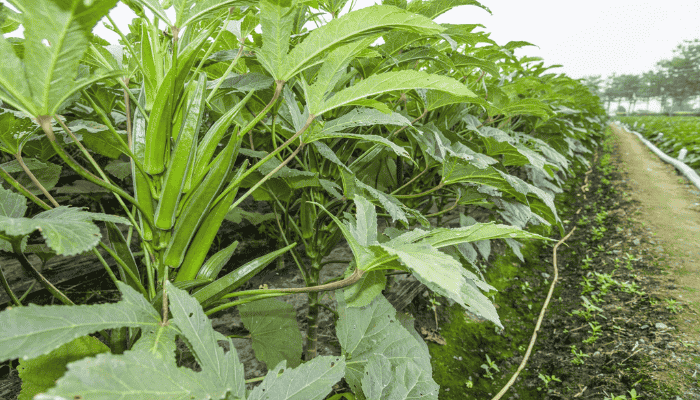
6. Capsicum (Bell Pepper)
Capsicum Definition
Capsicum, or bell pepper, is a colorful, mild-flavored vegetable available in green, red, yellow, and orange varieties.
Plant Care
Capsicums require a warm, sunny spot with well-drained soil and regular watering. They benefit from staking to support the heavy fruits.
Capsicum Benefits
Capsicums are loaded with vitamins A, C, and E, which promote eye health, immunity, and skin health. They are incredibly low in calories, making them an excellent choice for effective weight management.
Uses
Besides being a culinary favorite, capsicums are believed to have anti-inflammatory properties that may aid in reducing arthritis symptoms.
Cooking
Capsicums are versatile, used in stir-fries, salads, curries, and stuffing recipes. They add color and a mild sweetness to any dish. Click here to buy Capsicum Seeds.
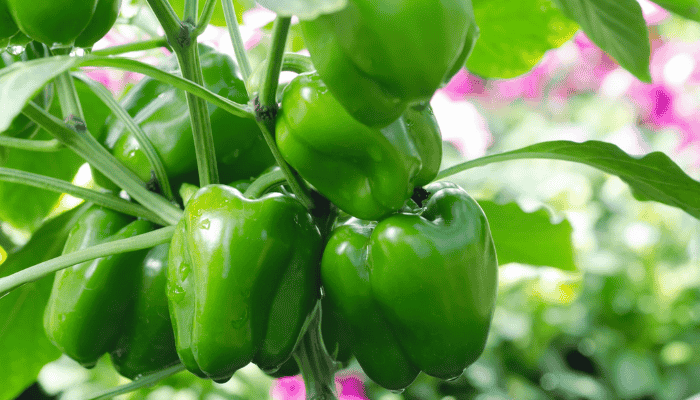
7. Tomato
Definition
The tomato is a juicy, red fruit commonly used as a vegetable, known for its tangy flavor. It belongs to the formidable nightshade family.
Tomato plant care
Tomatoes require ample sunlight and well-drained, nutrient-rich soil. They need regular watering and staking support as they grow taller.
Benefits
Rich in lycopene, tomatoes are powerful antioxidants that benefit heart health and reduce the risk of cancer. They are also beneficial for skin health and hydration.
Tomato Uses
Tomatoes are used in both culinary and cosmetic applications, thanks to their antioxidant and skin-clarifying properties.
Cooking
Tomatoes are a staple in Indian cooking, used in sauces, curries, salads, and soups. They add a tangy and sweet flavor to dishes. Click here to buy Tomato Seeds.

8. Beans
Definition
Beans are edible seeds or pods belonging to the legume family, commonly used in various cuisines worldwide.
Plant Care
Beans prefer full sun and well-drained soil. They need moderate watering and can benefit from a trellis or support structure.
Beans Benefits
Beans are an excellent source of plant-based protein, fiber, and essential nutrients like iron and folate, which support heart health and aid in digestion.
Uses
Beans are often used in traditional medicine for their high protein content and ability to support muscle and tissue health.
Beans for Cooking
Beans can be boiled, stir-fried, or used in curries. In Indian cuisine, they’re often included in dals and stir-fry dishes. Click here to buy Beans Seeds.
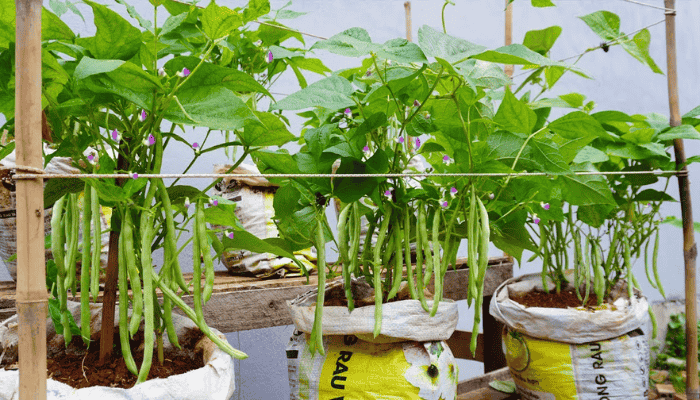
9. Pumpkin
Definition
Pumpkin is a round, orange vegetable with a thick shell and a nutrient-rich flesh. It belongs to the gourd family.
Plant Care
Pumpkins require a large growing space, warm temperatures, and plenty of sunlight. They require consistent watering but must avoid excessive moisture.
Pumpkin Benefits
High in beta-carotene, pumpkins support vision and skin health. They are also rich in fiber, vitamins, and minerals, which promote immune health.
Uses
Pumpkins are used in medicinal treatments for digestive health and as a natural laxative. Click here to buy Pumpkin Seeds.
Pumpkin for cooking
Pumpkins are versatile in cooking, used in soups, curries, and desserts. Pumpkin seeds are also edible and nutrient-rich.

These vegetables are essential in Indian cuisine and offer year-round harvests with proper care. From boosting immunity to aiding digestion, each of these vegetables provides multiple health benefits while adding variety and nutrition to daily meals.


